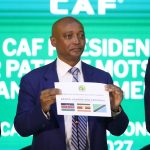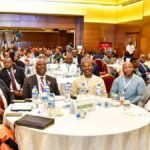General
FG Wades Into Dangote-NMDPRA Rift
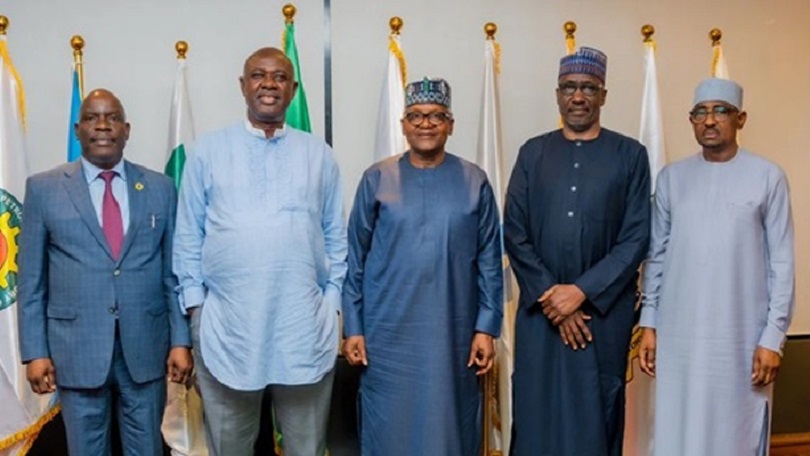
By Adedapo Adesanya
The federal government, through the Minister of State for Petroleum Resources (Oil), Mr Heineken Lokpobiri, has intervened in the media war between Mr Aliko Dangote and the Nigerian Midstream and Downstream Petroleum Regulatory Authority (NMDPRA).
The chief executive of NMDPRA, Mr Farouk Ahmed, had claimed that diesel from Dangote Refinery in Lagos was of low quality compared with imported ones, adding that the private refinery was only 45 per cent completed as opposed to what Mr Dangote had told the world, and was not licenced to commence operations.
This angered the businessman, who lambasted the regulator for demarketing his company, revealing that tests conducted on his diesel showed low traces of sulphur compared with samples of imported diesel from two petrol stations within his vicinity.
He alleged that some forces were bent on ensuring that the refinery did not work as this would affect their petrol importation business.
The rift was getting messier and attracted the attention of the federal government, which has moved to calm nerves.
In a statement by the Special Adviser Media and Communication to the Minister, Mrs Nneamaka Okafor, it was disclosed that those who attended the meeting included Mr Ahmed; the chief executive of the Nigerian Upstream Petroleum Regulatory Commission (NUPRC), Mr Gbenga Komolafe; and the chief executive of the Nigerian National Petroleum Company(NNPC) Limited, Mr Mele Kyari.
“The meeting focused on finding a sustainable and lasting solution to the current impasse affecting the Dangote Refinery, with all parties demonstrating a commitment to collaborative and proactive problem-solving,” the statement read.
Mr Lokpobiri at the meeting restated the importance of cooperation among stakeholders to ensure the success of the oil and gas sector which he said is critical to Nigeria’s economic growth and energy security.
“This meeting marks a significant step towards resolving the challenges and underscores the Minister’s dedication to fostering a conducive environment for Nigeria’s oil and gas sector,” the Minister’s aide said.
They all thanked the minister for his leadership and intervention in a bid to resolve the issues, the statement announced.
However, bar the statement, it is not immediately clear if the issue has been fully resolved.
General
IHS Nigeria Commissions Recreational Park in Omole Estate Phase 1
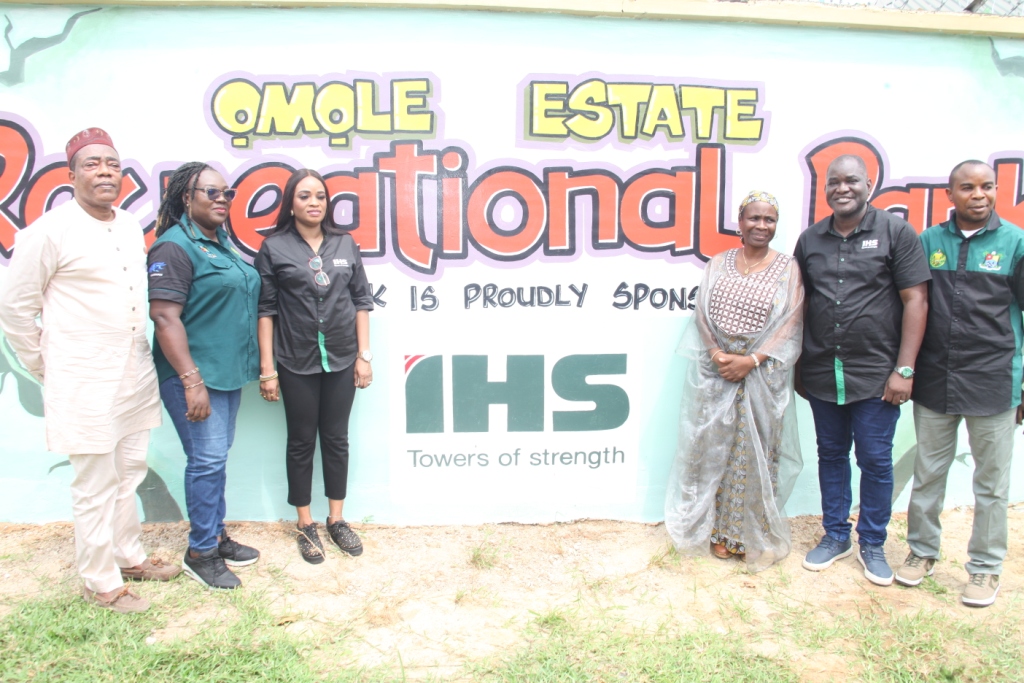
By Modupe Gbadeyanka
A new community recreational park has been commissioned by IHS Nigeria in Omole Estate Phase 1, Lagos, delivered within a four-month timeline through collaboration with the Omole Estate Executive Committee, the Lagos State Government representatives, and the Lagos State Parks and Gardens Agency (LASPARK).
The Head of Partnerships for LASPARK) Ms Temitope Okumuyide, said the project aligns with the agency’s mandate to promote healthy and safe environments across Lagos State.
“This park contributes to creating functional and enjoyable green spaces for the citizens of Lagos,” she said, thanking IHS Nigeria for helping in promoting a greener environment across the metropolis.
The chairman of Omole Phase 1 Residents Association, Ms Abimbola Osikoya, expressed gratitude for IHS Nigeria’s generous donation.
“In a city as dynamic as Lagos, spaces like this are essential. This park will serve as a place for relaxation, family bonding, healthy living, and neighborly interaction. The measure of a society is how it cares for its people, and IHS has demonstrated this through meaningful community investment,” she said.
Also, the chairman of the Titilayo Adedoyin Community Development Association, Mr Segun Fayemi, described the park as a landmark achievement, adding, “Out of the 18 sectors in this area, only mine has such a facility. I am the happiest man today.”
During the commissioning of the project, the Director of Sustainability for IHS Nigeria, Ms Titilope Oguntuga, described the project as more than infrastructure, highlighting the social and human value of shared public spaces.
“At IHS Nigeria, we believe infrastructure goes beyond connectivity and technology. It is about people and the environments in which they live, work, and thrive. Recreational and green spaces are critical to promoting well-being, inclusion, and stronger communities,” she said.
She noted that the presence of the IHS team at the event reflected the company’s dedication to the project and the host community, adding that, “The turnout today also shows our commitment and excitement to witness the commissioning of this park.”
General
NISO Blames Gombe Station Disturbance for Grid Collapse
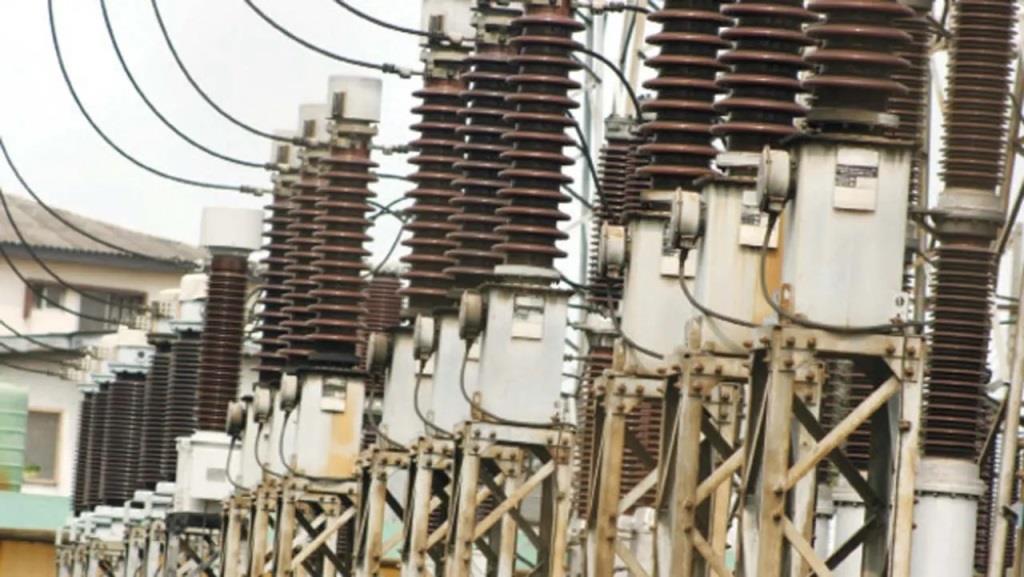
By Adedapo Adesanya
The Nigerian Independent System Operator (NISO) has attributed Tuesday’s national grid collapse to a voltage disturbance at the Gombe transmission substation.
A statement issued by the system operator, while providing updates on repair and restoration efforts, stressed that the incident did not amount to a total system collapse, contrary to reports by some media organisations.
Recall that for the second time this year, the national grid recorded a disturbance that left all distribution companies unable to serve their franchise states. It followed a similar occurrence last Friday.
NISO said electricity supply across the affected areas has since been fully restored following immediate corrective actions by its technical teams, adding that the disturbance originated from the Gombe transmission substation before spreading to other parts of the network.
“The national grid has been fully restored, and electricity supply across the affected areas has since returned to normal.”
“The incident only affected part of the national grid, therefore not a total collapse,” NISO added.
“The event was accompanied by the tripping of some transmission lines and generating units, resulting in a partial system collapse.”
The system operator said restoration efforts commenced shortly after the disturbance and were completed within hours.
NISO disclosed that the voltage disturbance quickly propagated across the transmission network, affecting multiple substations.
The disturbance impacted power infrastructure beyond Gombe before stabilisation measures were implemented.
The voltage disturbance spread to the Jebba Transmission Substation, Kainji Transmission Substation was also affected, while the Ayede Transmission Substation experienced disruptions as the disturbance propagated.
According to NISO, although corrective actions were immediately deployed to stabilise the system and restore normal grid operations, some transmission lines and generating units tripped during the incident.
Nigeria’s power grid has continued to experience recurring disturbances in recent years, raising calls for alternative and proper power infrastructure in the country.
In 2025 alone, the national grid collapsed 12 times, with the last recorded incident occurring on December 29.
Tuesday’s incident represents the second grid collapse recorded in 2026, as well as the second in five days.
General
Manufacturers Kick Against NAFDAC’s Renewed Crackdown on Sachet Alcohol
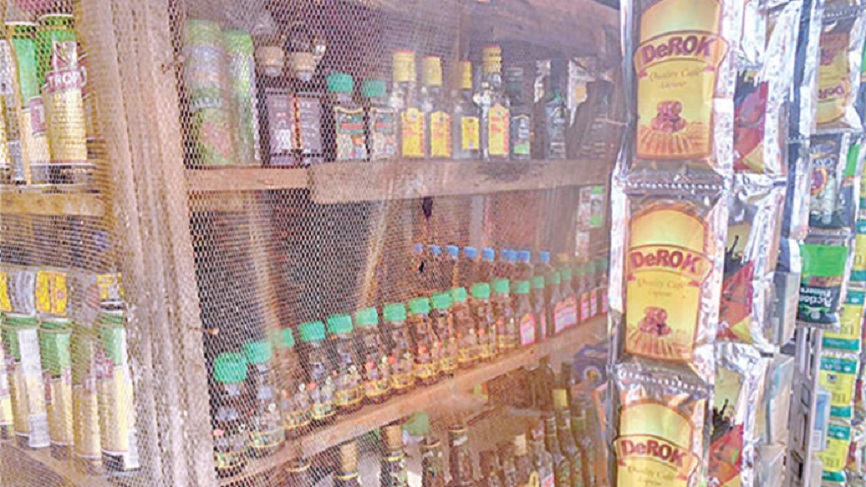
By Adedapo Adesanya
The Manufacturers Association of Nigeria (MAN) has urged the federal government to intervene and restrain the National Agency for Food and Drug Administration and Control (NAFDAC) from renewing its enforcement of the ban on alcoholic beverages packaged in sachets and small PET bottles.
The Director-General of MAN, Mr Segun Ajayi-Kadir, who made the call in a statement, stressed that NAFDAC’s action contradicted directives from the Office of the Secretary to the Government of the Federation (SGF) issued on December 15, 2025, suspending the implementation of the ban.
Mr Ajayi-Kadir said the renewed enforcement also runs contrary to a March 14, 2024, resolution of the House of Representatives, which followed a public hearing with stakeholders, restrained NAFDAC from banning sachet and PET-bottled alcoholic beverages.
According to him, the conflicting directives from government institutions have created confusion among operators in the wines and spirits sector and are disrupting legitimate businesses, stating that sachet and PET-bottled alcoholic beverages were introduced to serve adult consumers with low purchasing power.
He added that smaller portions could help curb excessive consumption rather than encourage abuse.
Mr Ajayi-Kadir noted that locally produced sachet alcohol was manufactured under hygienic conditions and duly certified by regulatory agencies, including NAFDAC, warning that an outright ban could fuel the proliferation of illicit and unregulated products that pose greater health risks.
He also dismissed claims that the products promote underage drinking, saying such assertions had been contradicted by empirical research.
“We would like to further place on record that the untested assertion of abuse by minors as the basis for the ban has been debated by credible and empirical research that was independently conducted.
“The industry, on its own, has even gone further, notwithstanding the report of the survey, to initiate a series of campaigns in respect of responsible alcohol consumption to discourage underage abuse.
“This has so far cost the operators over a billion Naira in advertisements at all levels of media outreach across the federation.
“This has been very impactful in discouraging abuse by underage persons and has deepened the access restriction landscape,” he said.
Mr Ajayi-Kadir added that the ban threatened jobs, livelihoods and government revenue, while also encouraging smuggling and importation of unregulated alternatives.
He reaffirmed the commitment of MAN to working with regulatory agencies to ensure compliance with standards, while appealing to the Federal Government to direct NAFDAC to halt actions that disrupt members’ operations.
-

 Feature/OPED6 years ago
Feature/OPED6 years agoDavos was Different this year
-
Travel/Tourism9 years ago
Lagos Seals Western Lodge Hotel In Ikorodu
-

 Showbiz3 years ago
Showbiz3 years agoEstranged Lover Releases Videos of Empress Njamah Bathing
-

 Banking8 years ago
Banking8 years agoSort Codes of GTBank Branches in Nigeria
-

 Economy3 years ago
Economy3 years agoSubsidy Removal: CNG at N130 Per Litre Cheaper Than Petrol—IPMAN
-

 Banking3 years ago
Banking3 years agoSort Codes of UBA Branches in Nigeria
-

 Banking3 years ago
Banking3 years agoFirst Bank Announces Planned Downtime
-

 Sports3 years ago
Sports3 years agoHighest Paid Nigerian Footballer – How Much Do Nigerian Footballers Earn





